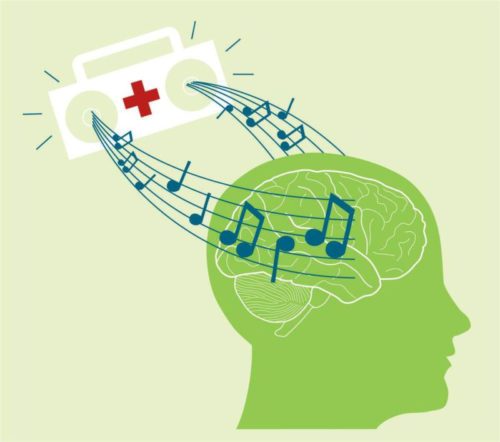Aural - Fixation
Where music & Technology intersect

If you have depressive symptoms and want to treat it naturally, using music therapy may be a good way to relieve the symptoms. While many people are familiar with the idea that listening to music can enhance their mood, recent research shows that music can be therapeutic and can help treat depression. Music therapy involves working with a music therapist and making music, improvising and listening to music, as well as traditional conversation therapy. Playing and listening to music in a therapeutic environment alone can help you to improve your mood and relieve the symptoms of depression.
Use live or played music sounds to treat depression
Create meaning through music. Usually, people reporting symptoms of depression are deprived of their desire or lack of interest in activities and/or loss of meaning. The act of music making allows you to take risks and to experience yourself in a different way and to be supported in a therapeutic context. Especially when you have difficulty expressing yourself in a different way, you can feel emotions while playing.
Let the music you create have meaning for you. You can create a song specifically about the sadness you feel about losing a beloved pet, the struggle you make after a career change, the desire to leave something valuable for you. Let these emotions and experiences guide your music as you play.
Interact with other people and yourself in a different way. If you devote yourself to music, allow yourself to refer to it in a different way. Instead of words, use emotion, tone, rhythm, and collaboration. Through interaction and participation through music, you can express yourself when words are hard to find, but emotions are not. Working with a music therapist can help you interact more deeply with your emotions and work in a supportive environment.
See how you feel when playing music. Do you feel present, focused on the moment, the music and the feeling? These can be healing factors for depression. So often we take in music at a passive level. We listen to music passively while we are working. We nod our head to a song while we are driving. Music might be in the background of love making or just while we are scrolling through a sex app. The point here is to take it in actively rather than passively and really be present.
Explore the vibration treatment. Music can be described as a sound that can be further reduced to vibrations. The vibration therapy (called Vibroacoustic therapy) uses weak vibrations that can be heard and felt and applied to the body. Vibroacoustic therapy works with the body in a way that makes the emotions and the bodywork more harmoniously by stimulating the different parts of the body by vibration. While they continue to gain momentum as a therapeutic option for depression, some studies have found positive responses to Vibroacoustic therapy as a therapeutic approach to depression.
Vibroacoustic therapy also helps relieve chronic pain (such as fibromyalgia) by relieving pain, increasing movement, and reducing the dose of medication. If you are working with a music therapist, ask if you want to play with the vibration through the percussion. Ask if Vibroacoustic therapy is available.
Get in touch with the movement. While many people know that exercise is a useful way to treat depression, it can even be helpful to make movements and experience oneself as a physical being to treat depression.
The beat of a guitar, the beating of a drum, or the movement of a bow on a violin can trigger movements that can contribute to the positive treatment of depression. The human body often responds to music by touching, nodding or clapping. Music helps you connect with your body and move naturally.
To Sing. It does not matter if you consider yourself a “good” singer, singing can help you to improve your mood and your thoughts and promote relaxation. Sing songs that you know and that are good for you. See how you feel after a few minutes of singing; have you changed your moods or thoughts?
Sing in the shower, in the car and in your house. Sing to your children, your pets or your garden. Do not be shy when singing; remember that it is good for you! Create a playlist that accompanies when you feel stressed or depressed. Sing and measure how you feel afterwards. If you work with a music therapist, ask to record songs with musical instruments. Even if you sing nonsensical words, it’s okay to just use your voice.
Learn an Instrument. If you do not know how to play an instrument, take one. After all, playing an instrument plays more parts of the brain than any other known activity. Take a few minutes each day to play the instrument and see what it feels like. Choose an instrument that gives pleasure; It can be as complex as a trumpet or as simple as a rattle.
Do not be too ambitious to choose a new tool. And it should be fun; it was not a difficult or frustrating experience. After all, it is not “work” an instrument, but a “touch”.
Of course depression is a complicated thing to deal with and I’m not saying just play some cool music and you won’t be depressed anymore. However, music is a proven tool that can be used as part of any approach for treating and dealing with depression. Studies upon studies have shown the impact that music can have on our brains. If you or someone you know has struggled or currently struggles with depression, I would encourage you to delve deeper into just how powerful music can be in the fight.
